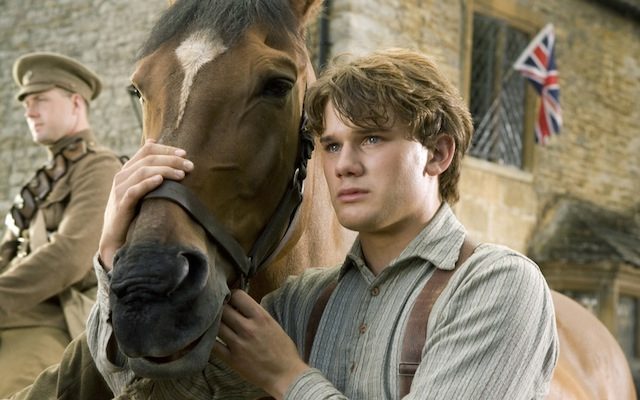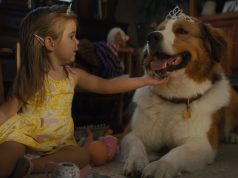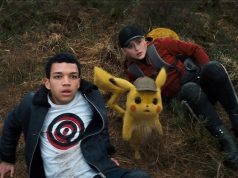
The main character in “War Horse” is the horse. I keep trying to convince myself otherwise, but it’s true. The story’s action follows the horse, a spirited thoroughbred named Joey, on a series of adventures on and near the battlefields of World War I. The constant is Joey’s original owner, a poor farm boy named Albert (Jeremy Irvine), who was heartbroken to see Joey sold to the war effort and hopes to be reunited with him someday. But this isn’t a movie about a boy trying to find his horse. It’s a story about a horse who used to belong to a boy and might eventually belong to him again.
In the meantime, the narrative shifts focus whenever Joey changes hands. He starts in the service of the British cavalry, then at various times is owned by German officers, young German soldiers seeking desertion, a little Dutch girl and her jam-making grandfather, and others. Everyone comments on what a remarkable horse Joey is, and I don’t know what they’re seeing that I’m not. As horses go, Joey seems slightly above average at best.
Which brings us to the main problem with this ramblingly episodic, earnest but dull Steven Spielberg misfire. The character we spend the most time with is Joey, who is a fine horse but a horse nonetheless and thus does not have goals, motivations, or strategies. He has a limited capacity to make things happen; mostly he can only react to things that happen to him. There are plenty of human characters who might engage our interest, and some of them occasionally do — so does Joey occasionally, for that matter — but they are decidedly not the focus. The focus is the majestic, mute creature who can’t formulate a plan or express a wish beyond the immediate future. The periodic attempts to anthropomorphize Joey by having him “volunteer” for a difficult task so a fellow horse (his girlfriend, I think) won’t have to do it are just silly.
And yet the handsomely photographed production has individual sequences that rise above the meandering narrative and corny dialogue (“The rest of our lives depend on this!”; “Wherever you are, I will find you!”; etc.) to become as emotionally compelling as Spielberg intended the entire film to be. Chief among these is a scene in which Joey is snagged by barbed wire in no man’s land and must be rescued through a cooperative effort by soldiers from both sides. Such a scenario of momentary detente is plausible (see, for example, the fact-based “Joyeux Noel,” about a Christmas Day truce), yet somehow magical in its ability to inspire. In other words, it’s classic Spielberg, something that’s generally lacking in “War Horse.”
C (2 hrs., 26 min.; )





